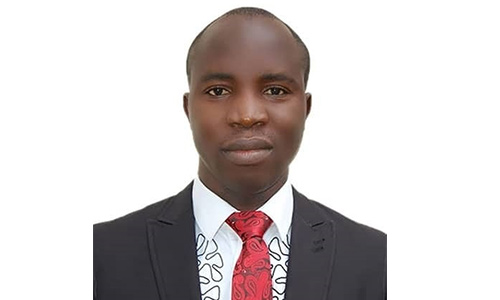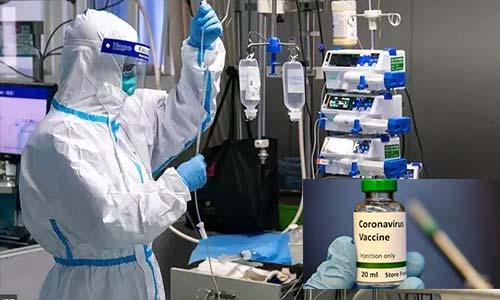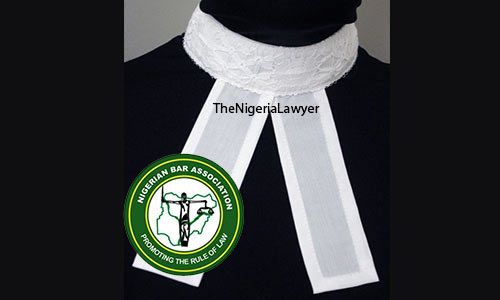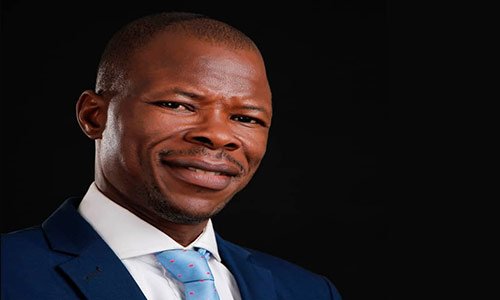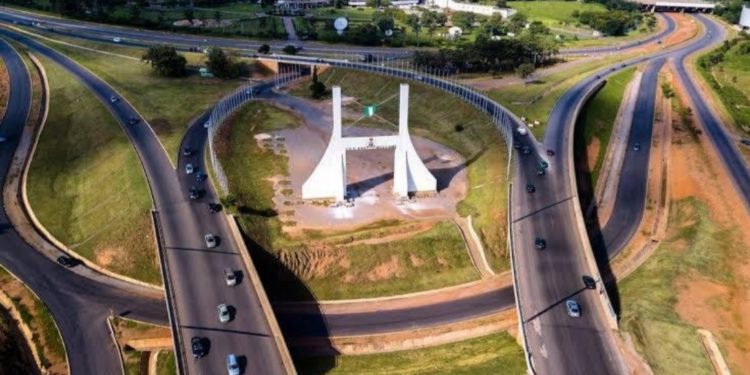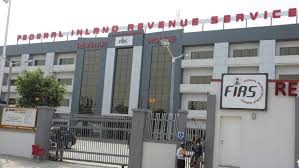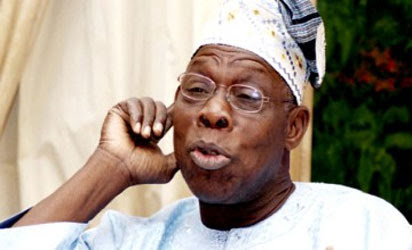By Adebola Olarotimi Lema
Internal democracy otherwise known as shadow election is the process of governance within a political party. It is the ability of a political party to govern itself through its internal administrations, internal mechanism thereby enhancing greater good for itself and the country at large. The opposite of internal democracy is ‘imposition’ which creates dissention, disharmony, conflict, disagreement, dispute, intra party conflicts, threats to regime stability/good governance and disorganization in a political party.
The Electoral Act in an attempt to instill internal democracy in the political space and political parties provides in section 87 of the Electoral Act, 2010 (as amended): A political party seeking to nominate candidates for election under this Act shall hold primaries for aspirants to all elective positions; The procedure for nomination of candidates by political parties for the various elective positions shall be by direct or indirect primaries; A political party that adopts the direct primaries procedure shall ensure that all aspirants are given equal opportunity of being voted for by members of the party; A political party that adopts the indirect primaries for the choice of its candidate shall adopt the procedure outlined below; Where a political party fails to comply with the provision of this Act in the conduct of its primaries, its candidate for election shall not be included in the election for the particular position in issue.
To underscore the importance of internal democracy, I refer to the work of Babayo Sule titled ‘Internal Democracy and Nigerian Political Parties: The case of All Progressives Congress’, where he posits. “Internal democracy is an important principle in the operations and survival of democratic regime globally. Lack of internal democracy creates serious intra party conflicts which can likely threaten regime stability and good governance”.
The failure of political parties to adhere strictly to internal democracy is catastrophic and disastrous in that it had in the time past led to the breakup of political parties. An example can be seen in the Presidential primaries of the Peoples’ Democratic Party (PDP) in 2014 where the then President, Goodluck Ebele Jonathan was the sole candidate for the office of the President. Many of the party leaders, Alhaji Atiku Abubakar and seven (7) Governors were dissatisfied with the party’s decision and were forced to leave the party and initially formed the ‘nPDP’ before 5 (five) of them finally moved to the All Progressives Congress (APC). This action of PDP, the movement of its leaders and Governors actually cost the PDP the Presidency in 2015 and that singular act of breach of internal democracy will haunt the party for a long time. On the other hand, the observance of internal democracy by political parties helps the society to stabilize as can be seen in developed democracies of the United States of America, the United Kingdom and Ghana.
In APC v Marafa (2020) 6 NWLR (Pt. 1721) 385 at 433, the Supreme Court aptly stated the need for political parties to observe internal democracy in the conduct of their affairs when Hon. Justice Paul Adamu Galinje, JSC stated “The democratic system this country adopted was borrowed from the United States of America and other nations of Europe. Those from whom we borrowed this system are steadily forging ahead in all areas of endeavour in order to create a stress free and economically viable nations. For this great country, some politicians either are ignorant of what party politics is, or out of mischief, have continuously dragged this nation backward. If care is not taken this class of politicians will drag this nation to the Stone Age, where all of us will be consumed. I once again, as this court has consistently preached, urge this class of politicians to play the game according to law and guidelines which they themselves have enacted. It is only when this is done that sanity will take center stage in the domestic and internal affairs of this great nation”
The consequence of political parties failing to adhere strictly to internal democracy is grave and as succinctly put by Honourable Justice Paul Adamu Galinje, JSC in Marafa’s case above can damage the economy of a prosperous nation and reverses its fortunes and condemn it to return to the stone age.
Going historically, the carnage that started in Ondo State and spread to other parts of the South West in 1983 cannot be divorced from the allegations by Chief Akin Omoboriowo that the shadow election/primaries organized by his political party, Unity Party of Nigeria, was rigged in favour of the then incumbent Governor, Chief Michael Adekunle Ajasin. According to Lanre Akinsola, who writes by the pseudonym ‘Onigegewura’ in an article, ‘Thunderstorms in the West: The Story of How Ondo State Went Up in Flames’ “On November 11, 1982, the shadow elections took place in Akure. The Nomination Committee for Ondo State was headed by Chief Sebastian Umoren from Cross Rivers State. All the four members of the Committee were from outside Ondo State. This was understandably to ensure that none of the three candidates was unduly favoured. At the end of the day, Ajasin polled 707 votes, Omoboriowo scored 531 votes and Akintoye came third with 94 votes. These figures were however contested by Omoboriowo who claimed that his score was 532, with Ajasin and Akintoye scoring 479 and 94 votes respectively. With the result announced by the nomination Committee, Chief Ajasin was declared the winner and the party’s flagbearer for the Gubernatorial election in 1983. It is on record that following the shadow election, Chief Omoboriowo wanted to mend fences with his boss, the governor. He was however prevented from doing so by some members of his group. Chief Omoboriowo was now confronted with the task of choosing another platform to actualise his political ambition”
The abuse of internal democracy by political parties in Nigeria got to its peak in 2006 following the result of the Peoples’ Democratic Party Gubernatorial primaries in Rivers State where Rt Hon. Rotimi Chibuike Amaechi challenged the result of the said primaries which produced Mr. Celestine Omehia as the winner. Rt Hon. Rotimi Amaechi successfully challenged the declaration of Celestine Omehia by INEC and the Supreme Court (after the general election and upon swearing in of Celestine Omehia as Governor) declared him as the winner of the disputed PDP primaries and therefore the elected Governor of the State in the eyes of the law.
The above Supreme Court decision rattled many political parties in Nigeria because it was the first time an aspirant at the party’s primary who did not participate in a general election was declared the winner in the general election. The Supreme Court’s reason for declaring Rt Hon. Rotimi Amaechi as governor of Rivers State was hinged on the fact that the electorates voted for the PDP as a party in the Gubernatorial election in the State and whoever rightly won the party primaries earlier held was the person who won as Governor in the general election.
One of the major abuses of internal democracy relates to the substitution of the names of winners of the party primaries by the National Executives of the party who have the singular responsibility to submit names of successful candidates to the Independent National Election Commission (INEC). The Electoral Act has however come up with several amendments to curtail these excesses/abuses of the political parties by making it impossible for names of winners of party primaries to be changed except upon death and/or withdrawal of the candidate himself.
Another abuse of internal democracy by the political parties in Nigeria without exception is the issue of violence perpetrated by agents of the candidates, government agencies, security agents, political thugs and political parties. The issue of violence manifested in the 2019 Zamfara State’s APC Gubernatorial primaries. The Independent National Electoral Commission (INEC) by its Guidelines directed that all political parties must do their primaries before the 7th of November, 2018. The All Progressives Congress in the first instance could not agree on the type of primaries, direct or indirect as provided by Section 87 (2) of the Electoral Act. The APC Ward, Local Government and State Congresses were conducted in violation of an order of the Federal High Court and the combined effect of which the ‘combatants’ were unable to agree on the form the party primaries should take and therefore were unable to hold any. Violence was openly threatened against the party’s Chairman (Adams Aliu Oshiomole) and the members of the Committee saddled with the responsibility to conduct the primaries. Eventually, there was no primaries and this scenario was what the Supreme Court referred to in the decision in APC v Marafa (supra).
In Rivers State, the All Progressives Congress could not hold its Ward, Local Government and State Congresses due to the raging internal conflict between the supporters of Rt. Hon. Rotimi Amaechi and Senator Magnus Abe. The party was therefore unable to conduct its Gubernatorial primaries and the end result was that there was no candidate for APC in the 2019 Rivers State Gubernatorial Election.
Recently, the Benin monarch, His Royal Majesty Omo N’oba N’Edo, Uku Akpolokpolo added his voice in condemning impunity, imposition and abuse of internal party democracy in a widely publicized Press release which the Cable news tagged “Godfatherism must end in Edo state”. The monarch stated as follows: “The Omo N’oba strongly advises that in order to eschew recurrent social political conflict that seems to constantly ravish the state, making Edo people a laughing stock to the rest of the country in how politicians manage the affaires of Edo people, our Edo political actors must eradicate the twin evil political vices of Godfatherism and consensus candidate. These two practices seem antithetical to the very fundamental basis of democracy”
As if the condemnation is not enough, Chief John Odigie Oyegun, former Governor of Edo State and the pioneer Chairman of the APC spoke truth to his political party in a press release tagged “BEFORE IT IS TOO LATE” on the 20th of June, 2020. In his exact words thus; “Unfortunately, what we have witnessed from our party is the steady erosion of even the very basic tenets of democratic principles in a manner that could turn our watershed victory of 2015 to the waterloo of our hard won democracy”.
One thing that is common to all the political parties in Nigeria is the lack of internal democracy. Both big and small political parties are guilty of abuse of internal democracy. One only gets to know and hear about these infractions because of the matters filed in Court by aggrieved members of the respective political parties. The sins in the smaller political parties are more and grievous but because they sometime hide the atrocities from the surface, an outsider may therefore not be in a position to know these and hear these infractions. Majority of the judicial decisions in Nigeria that reinforce and or strengthen internal democracy involved the big political parties of PDP (between 1999 and now) while for APC it became a national party just in 2015 and their sins are being made known now. Prior to 2015, there were less reported judicial pronouncements in AD, AC, ACN for abuse of internal democracy. However, from 2015, when the APC became a national party, it has witnessed the challenge of its primaries in court, the most prominent being the case of Zamfara State where Senator Kabiru Marafa successfully challenged the lack of internal democracy in the conduct of APC Primaries in 2019 as reported in the case of APC v Marafa’s case (supra).
On Sunday, the 30th of August, 2020, the Co-Chairman of the National Consultative Front ‘NCFront – a political group’, Professor Pat Utomi in a discussion on Channels television ‘Politics today’ said internal democracy is lacking in our political parties and that the political parties are private estates and investments of the political leaders.
To buttress the assertion that our political parties are an extension of private estates and investments of our political leaders I will share three instances that are recent both in PDP and APC. Firstly, on Monday, the 31st August, 2020, Senator Abiodun Olujinmi, the PDP senator representing Ekiti South Senatorial district at the senate accused the National leadership of the party of supporting the Ayodele Fayose faction of the party in Ekiti State on the parallel congresses conducted in the state. Apparently, Senator Olubunmi Olujinmi was referring to the parallel congresses conducted by two factions of the PDP in Ekiti State. If the above scenario is not nipped in the bud, two Governorship primaries will be conducted in the party as they prepare for their gubernatorial election in the state in 2021.
Secondly, the APC on Thursday, 3rd September, 2020 conducted its party primaries to fill the Imo North Senatorial seat which became vacant due to the demise of Senator Benjamin Nwajumogu who died on the 19th of December, 2019 as the Independent National Electoral Commission (INEC) has scheduled the Imo North Senatorial Bye-Election for 31st October, 2020. Two primaries were held, one was conducted by a faction of the APC, and Frank Ibezim scored 13,637 votes to emerge Senatorial candidate which was supervised by the Chairman of the Election Panel, Senator Ajibola Basiru. Another faction held a different APC primary where Senator Ifeanyi Ararume was said to have polled 22,944 votes and was declared winner of the contest by a member of the Election Panel, Umar Gana. How did the political party get to a situation where two primaries are conducted for a single senatorial seat? Indiscipline and inconsistencies on the part of the leaders of the political party solely account for this. Though the party, through its deputy spokesman, Yekini Nabena, said the Senator Ajibola Basiru-chaired Election Panel is the duly appointed and legitimate panel empowered by the Party to conduct the exercise. Time will tell.
Thirdly, an incident happened in a political party I will not mention. An aspirant who did not win an election was declared winner because of his relationship to a party leader in the state. The aspirant who believed he rightly won the primaries but was not declared winner approached the Court on a pre-election matter. He was able to show to the Court that he was the legitimate winner of the party primaries with substantial documentary evidence that could not be impeached by the other aspirant, party and INEC respectively. This singular instance and many others show the extent of the damage that the leaders of our political party have done to internal democracy in the conduct of party primaries. The above instances go a long way to confirm the assertion of Professor Pat Utomi in the interview mentioned earlier.
In concluding this piece, I make bold to say that internal democracy will only become entrenched in our country when we have many members of the political parties like Rt. Hon. Chibuike Amaechi; Senator Kabiru Marafa and others (who are willing to challenge the deficiencies in the conduct party primaries and the arbitrary change in the result of party primaries). As postulated by Professor Pat Utomi, internal democracy is lacking in our political parties because our political parties are private estates and investment of the political leaders. To stop the hold of our political leaders on the political parties, I commend the advice given by Dr. Muiz Banire, Ph.d (former National Legal Adviser and former Chairman, AMCOM) to Nigerians, who have second or alternative addresses to get involved in our political parties. I am sure when this happens the political leaders who have pocketed the political parties would have a rethink and allow the political parties a fresh breath. The reason internal democracy is sidestepped in our political parties and our polity today is because the godfathers in the political parties determine what happens and majority of the party members are not exposed or majority of them are the less privileged/educated in the society like bricklayers, carpenters, mechanics, market women, National Union Road Transport Workers (NURTW), Road Transport Employers Association of Nigeria (RTEAN), Student activists etc while our professionals watch from the sideline. I am of the view that until there is a change of attitude, the politicians and party leaders who have held the political parties as private estates and investment will not yield their grip. I therefore add my voice to the voice of Dr. Muiz Banire, Ph.d, that professionals and those who have second or alternative addresses should get involved in our political parties to achieve a better result and by extension a better nation.
ADEBOLA O. LEMA ESQ is a Lagos based Legal Practitioner and Managing Partner of Fountain Court Partners. [email protected]

